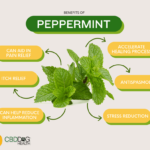Can Dogs Have Cheetos
As a dog owner, it’s natural to want to share your favorite snacks with your furry friend. However, not all human foods are safe for dogs to consume. One popular snack that many people wonder about is Cheetos. Can dogs have Cheetos? Let’s explore this question in more detail.
Firstly, let’s take a look at what Cheetos are made of. These crunchy, cheesy snacks are primarily composed of cornmeal, vegetable oil, and cheese powder. While these ingredients may not seem harmful on their own, they can pose several risks to dogs.
One significant concern when it comes to feeding your dog Cheetos is the high fat and salt content. Consuming too much fat or salt can lead to obesity and other health problems such as heart disease, diabetes, and high blood pressure. Additionally, the high salt content in Cheetos can cause dehydration in dogs.
Another issue with feeding your dog Cheetos is that they contain artificial flavors and preservatives. These additives can cause digestive issues such as vomiting and diarrhea in dogs.
Furthermore, the shape and texture of Cheetos can also pose a choking hazard for dogs. The small, cylindrical shape of these snacks can easily get lodged in a dog’s throat or intestines, causing serious health issues.
So, can dogs have Cheetos? The answer is no; it’s best to avoid feeding your dog Cheetos altogether. While one or two pieces may not harm your dog significantly, regular consumption can lead to numerous health problems down the road.
Instead of feeding your dog processed human snacks like Cheetos, opt for healthier alternatives such as fruits and vegetables. Many fruits like apples and bananas make excellent treats for dogs while providing essential vitamins and minerals.
In conclusion, while sharing food with our furry friends may be tempting at times, it’s crucial to keep their health in mind. Feeding your dog Cheetos can lead to several health problems, including obesity, heart disease, and digestive issues. Instead, opt for healthier alternatives that your dog will love just as much. Remember, when it comes to our pets’ health, prevention is always better than cure.



